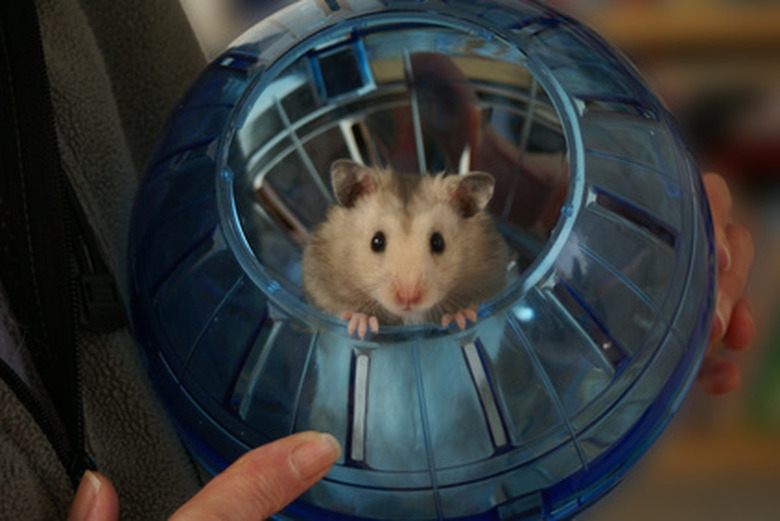How To Train Your Hamster To Sleep At Night
Hamsters are crepuscular (which means they're most active around sunset and sunrise) to help them avoid their daytime and nighttime predators. You can train them to sleep at night by keeping hamster cages in a setting that feels like their preferred sleeping environment at night. Give them activities and experiences to look forward to during the day. If you're patient and respect their natural instincts, you could have more time to bond with your hamster during the day and have fewer sleep interruptions during the night.
Develop a positive relationship
Develop a positive relationship
Hamsters are nervous animals who are prone to stress. Hamster cages can keep them safe, but they need special attention from you when it comes to their emotional needs. Your hamster may be more motivated to be awake when you are if you have a positive relationship. A dwarf hamster's sleep schedule might be easier to change because they're more social and tend to wake up more often during the day.
Keep hamster cages clean and provide your hamster with toys to keep him mentally stimulated. Don't make any sudden movements or noises, as they can be very startling for a hamster. Help him to feel safe in his environment so that he feels no need to fear predators. Handle him early, often, and with care. Be patient with him and in time, your hamster may change his sleep pattern more readily because he wants to spend more time with you.
Don't disturb quiet hamster cages
Don't disturb quiet hamster cages
Twilight hours are the safest time for hamsters because they are prey to many animals, including dogs, rook (similar to crows), and common buzzards. Keep this in mind when trying to change her sleep cycle. Start by feeding and playing with her earlier in the evening when activity comes naturally to her to give her something positive for which to wake.
Hamsters sleep for 12 to 14 hours a day in total but are likely to wake up a few times within that time period to eat or use the bathroom. If your hamster is asleep, don't wake her because hamsters who don't get enough rest can become aggressive and may bite. However, if she wakes up on her own, this may be a good opportunity to play with her to strengthen your bond and tire her out.
A dwarf hamster sleep schedule might accommodate more daytime play. If your hamster is already sleeping at night, it may be because hamster cages in pet stores are more active places during the day, and some hamsters grow accustomed to that schedule.
Turn off the lights
Turn off the lights
Hamsters rely on light — or rather, the lack of light — to let them know when to be active. When it gets dark, they know it's time to get up and start looking for food. Keeping hamster cages in dark, quiet rooms where no one else sleeps can help you change your hamster's sleep pattern and maintain his routine.
Though it's best not to expose your hamster to artificial light, if there is a light on near your hamster, make sure it isn't blue or white light. They cause the most severe symptoms of depression in hamsters (and humans). Surprisingly, red light affects depression symptoms the least, although no light has the best outcome.
Keep being patient
Keep being patient
Training your hamster to sleep at night won't be instantaneous, but if you're patient, it might just pay off in the end. Trying to change your hamster's sleep pattern too quickly can cause her stress, and that stress can be bad for her health. Make gradual changes and monitor how they affect her. When you find a routine that works, keep it up.
